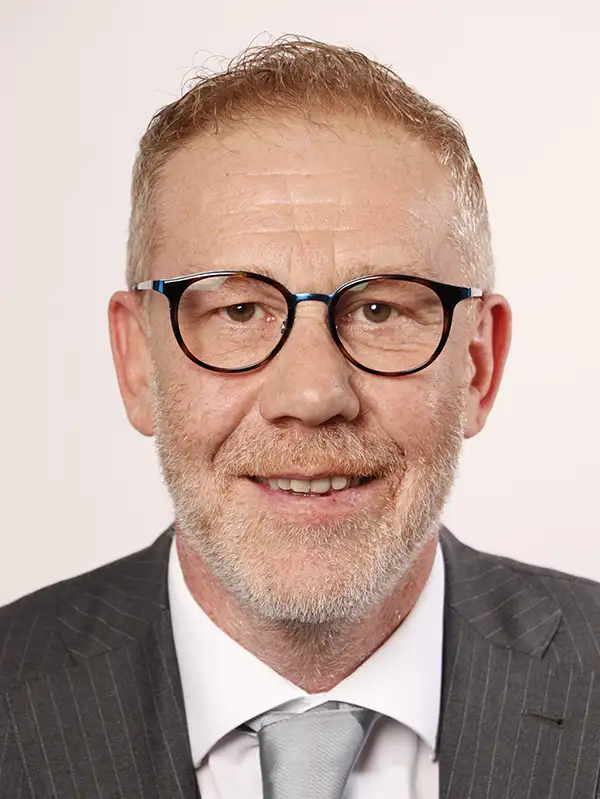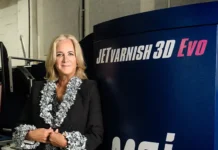
Emilio Corti is fluent in four languages – something that likely has come in handy over the course of his expansive career. Today, Corti is based in the United States, serving as region business director for BOBST, where he’s responsible for the company’s capital business throughout the Americas. PostPress magazine posed questions to Corti to tap into his expertise in folding cartons and find out what he thinks of the future of the industry.
How did your career develop in the folding carton and packaging industry?
I have worked in the industry since the early 1990s, specializing in initiating, restructuring and managing local sales and services branches. I joined the BOBST team in 2003 as marketing and sales manager of the folder-gluers product line.
My earlier career with BOBST included a move to Mexico, where I became CEO of the North Latin America business. Working with outstanding teams, I was able to re-establish the company’s leading market position in Central America, Mexico and the Caribbean by building new working procedures and processes and increasing overall efficiency. From there, I moved to Switzerland, where I led capital sales worldwide for the folding carton and corrugated board industries. In January 2021, I moved back to the US to serve in my current role.
Over the past two years, we’ve seen tremendous growth in certain segments of folding cartons, such as pharmaceuticals and food. Do you expect this to continue in 2023?
Yes, absolutely. Demand for folding cartons is predicted to grow in several end-use segments, including “on-the-go” eating, pharmaceuticals and beverages. “On-the-go” eating growth is due to continuing urbanization, busier lifestyles, more working women and single-parent/single-person households, and time pressures.
Growth in the pharmaceuticals sector, meanwhile, partly is due to changes in regulations, and partly because growing health awareness among consumers, especially since the pandemic, is increasing demand for cartons for pharmaceutical products.
Folding cartons are one of the most sustainable forms of packaging. Do you see more brand owners switching to folding cartons as a more sustainable solution?
Demand for sustainable packaging remains a main driver for growth, and many brand owners have committed to sustainability goals – such as 100% recyclable packaging by 2025. There certainly is an increased utilization of paper instead of plastic and increasing government regulations and legislation for non-recycled material.
Sustainability covers the entire packaging spectrum, and it requires collaboration. We are in a very exciting period for sustainable packaging, and at BOBST, we believe we’ve reached a defining moment. We have introduced oneBARRIER FibreCycle, which is a full paper, mono-material, recycle-ready solution, developed in response to increasing demand in the industry for more paper-based packaging options.
Both as an industry and as a society, we need to keep collaborating and talking. Education is a significant part of this; we need better home education for consumers on waste sorting and recycling, and improved collaboration, not only with the entire packaging spectrum but also with waste management companies, for example. It is a process, but huge steps forward have been made.
What are the biggest challenges facing the print/packaging/folding carton industry? How should the industry respond to successfully grow and thrive?
There have been some significant pressures on our industry in the last year or so, due to factors including global economic instability, global supply chain challenges, human resource shortages and the energy crisis.
As we look at the year ahead, our hope is that many of these challenges settle down, but the human resource shortage is an example of a challenge that likely will be ongoing for some time. When we speak with converters, we still are hearing that many of them are struggling to find skilled machine operators or to retain or find skilled personnel.
Companies, like BOBST, can help, whether that’s supporting the training of operators or through the automation and digitalization of the production process. This includes automating the setup of the machines and changeovers, making production for our customers easier, more reliable and therefore more efficient; or automating the machine to enable it to process a PDF file to set up the machine automatically for production – right up to the end product being ready to be shipped to the client.
It’s a challenge but also an opportunity. We can make the process smoother and faster. This industry always has been about adapting and evolving, and we will continue to do that and help our customers to do the same.
What other trends in folding cartons do you predict for 2023 and beyond?
There are three key trends we foresee in 2023: zero-fault packaging, automation and digitalization.
Zero-fault packaging will continue to be a non-negotiable factor. Zero-fault packaging puts the onus on the manufacturer to provide completely fault-free packaging in short lead times. Low quality is not sellable. It means waste and higher costs, and it lowers the converter’s profitability.
Automation of plants will continue to be a key focus. With job runs getting shorter, automation is required for quick changeovers. The ongoing challenges around the lack of skilled manpower and increased production rates will drive further automated solutions. In the near future, companies will have to offer solutions to answer the latest market demands, including robotics and more.
Meanwhile, the digitalization of the industry will continue throughout the complete supply chain. Cloud-based reporting integrated into the quality assurance monitoring systems of equipment enables converters to receive real-time data.





